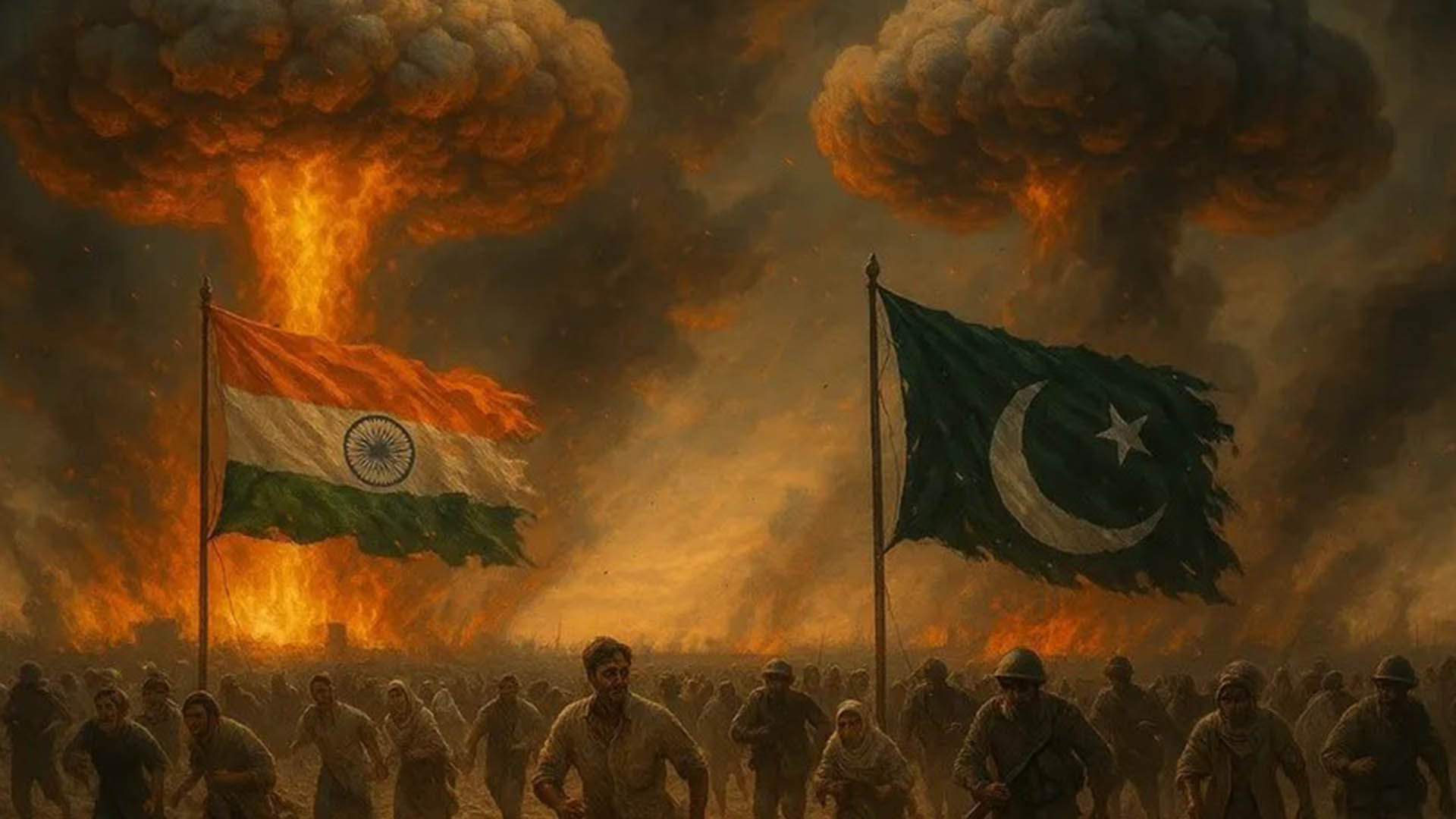Escalating Tensions Between India and Pakistan Raise Global Fears of Nuclear Conflict
With over 1.5 billion people residing across both nations and the potential for radioactive fallout to transcend borders, any nuclear exchange between India and Pakistan would constitute not just a regional catastrophe but a global crisis.

By Ahora Qadi
ERBIL (Kurdistan 24) – The recent deadly attack on Indian tourists in Kashmir has rekindled one of the world’s longest-running and most dangerous rivalries. With tensions soaring between nuclear-armed India and Pakistan, fears are mounting that a miscalculation could spiral into a catastrophic atomic confrontation.
A Brutal Attack Sparks Alarm
On Apr. 22, 2025, an unprecedented assault in the mountainous Bahlgam region of Indian-administered Kashmir resulted in the deaths of 26 Indian tourists and left several others wounded. The attack, claimed by the anti-India militia group that is based in Pakistan and call them self Teeba Army, marked one of the bloodiest episodes in Kashmir’s recent history, triggering widespread condemnation and raising the specter of retaliatory escalation.
The tragedy swiftly refocused international attention on the volatile relationship between India and Pakistan, two nuclear-armed neighbors locked in a decades-long territorial dispute over the Himalayan region of Kashmir.
Historical Hostility and Nuclear Shadow
Since their partition in 1947, India and Pakistan have fought multiple wars, with Kashmir remaining the core of their geopolitical rivalry. Ethnic, religious, and territorial disputes have fueled persistent unrest, and the region has become a symbol of unresolved conflict and regional instability.
The last major confrontation between the two powers occurred in 2019, but the April 22 attack has dramatically increased the risk of renewed conflict. Unlike conventional confrontations of the past, both countries now possess advanced nuclear arsenals—India and Pakistan each declared themselves nuclear powers in 1998.
Though their nuclear stockpiles remain smaller compared to the United States and Russia, the densely populated geography, combined with persistent hostility and political mistrust, makes South Asia one of the most dangerous nuclear flashpoints in the world.
Nuclear Doctrines Under Scrutiny
India maintains a declared no-first-use policy, pledging not to initiate a nuclear strike but reserving the right to retaliate with devastating force. However, Indian defense strategists have increasingly hinted that New Delhi may revise this stance depending on evolving threats.
Pakistan, on the other hand, also adheres to a no-first-use declaration—but with crucial caveats. Islamabad has repeatedly emphasized that it would resort to nuclear weapons if its national security were gravely threatened, including in the event of a large-scale conventional invasion.
Given this precarious strategic balance, political and military analysts now fear that the Kashmir attack could become the catalyst for a broader confrontation. The potential for a misstep—whether intentional or accidental—could have consequences far beyond the subcontinent.
A Global Crisis in the Making
With over 1.5 billion people residing across both nations and the potential for radioactive fallout to transcend borders, any nuclear exchange between India and Pakistan would constitute not just a regional catastrophe but a global crisis.
International observers have voiced growing concern. Security analysts warn that such a conflict would not remain confined to South Asia. Rather, it would destabilize the global economy, disrupt supply chains, and shatter long-standing arms control frameworks.
Both nations have faced pressure to de-escalate and engage in meaningful dialogue. Yet, in the aftermath of the Kashmir attack, political rhetoric in both capitals has hardened.
The Clock Ticks
As geopolitical tensions escalate and nationalistic fervor surges, the world watches with growing unease. The fear of a nuclear confrontation is no longer theoretical—it is a present danger, looming large over a region that has already paid a heavy price for decades of unresolved conflict.
Unless immediate diplomatic channels are activated and restraint exercised by both sides, the crisis threatens to spiral into what many fear could be the first nuclear war of the 21st century—a war that no one can win.
